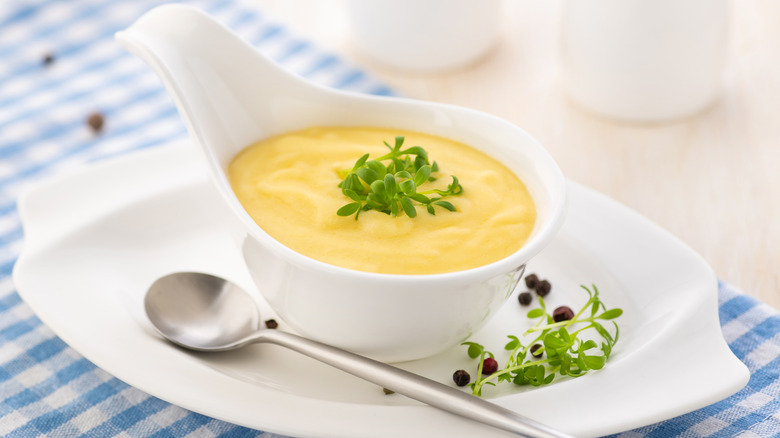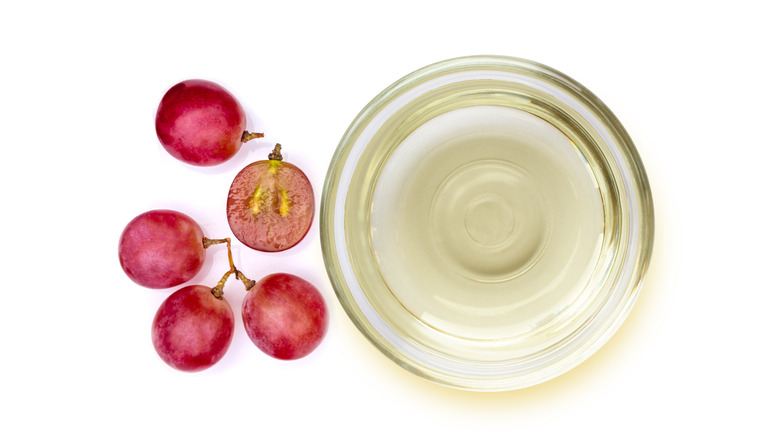The Best Substitute For Lemon Juice In Hollandaise Sauce
Hollandaise sauce, with its ethereal creaminess and delicate tartness, stands as a true classic in the world of culinary delights. Its velvety texture, rich buttery flavor, and subtle tanginess make it the ideal accompaniment for a wide array of dishes, from the iconic eggs Benedict to succulent fish and vibrant vegetables like asparagus. Yet, there are occasions when lemon juice, the traditional source of that delightful tartness, may not be readily available or suitable due to allergies or personal preferences. Enter white wine vinegar, a fantastic alternative that adds a tangy note to the velvety hollandaise, while maintaining the essence of the sauce.
While the sauce will lack the unmistakable fruitiness of lemon juice, the white wine vinegar packs an extra acidic punch that is not unwelcome in hollandaise sauce. In place of the signature fruit flavor of the lemon are the subtle wine notes that the vinegar brings, adding a bit of spirit and herbaceousness. To substitute lemon juice with white wine vinegar in a hollandaise recipe, it's important to maintain a balance in acidity. Since white wine vinegar is typically a little less acidic than lemon juice, it's advisable to double the amount used in the recipe. Although you may want to start with less and taste as you go. By doing so, you ensure that the sauce retains its desired taste and texture, with the vinegar enhancing your dish without overpowering it.
How to incorporate white wine vinegar into hollandaise sauce
Start by gently heating your butter until it's fully melted but not yet sizzling, then set it aside to cool slightly. Meanwhile, in a separate bowl, whisk together egg yolks and a dash of white wine vinegar, preferably a high-quality variety, until they combine into a creamy and slightly frothy mixture. Now, it's time to introduce the melted butter into the yolk-vinegar mixture. Slowly drizzle the butter into the bowl while continuously whisking vigorously. This gradual incorporation is vital to ensure a smooth and emulsified sauce. Continue whisking until the mixture thickens and reaches a luxurious consistency akin to that of traditional hollandaise.
White wine vinegar provides an excellent alternative to lemon juice, but it's worth noting that other citrus options like orange, blood orange, or lime juice can also be used as substitutes. The beauty of these alternatives is that they can impart unique and intriguing flavor profiles to your sauce. Be sure to use them in the same quantity as you would lemon juice, but be prepared for a subtle twist in the taste, which can be delightful and unexpected. You can also reach for other vinegars when making a lemon-free hollandaise. From apple cider to red wine to sherry, each can add the acid you seek, but they all bring their unique flavors and varying acidities to the palate. It's important to consider the dish you're serving the hollandaise sauce with and what would best support it.

